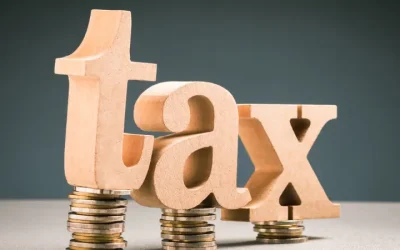Paying off a mortgage in the Netherlands is a significant financial milestone, but it can also have implications for your Box 3 tax, which taxes your savings and investments. Here’s an exploration of how this can occur and what to consider, including scenarios involving primary residences.
Understanding the Dutch Tax System
The Dutch tax system divides taxable income into three categories:
- Box 1: Income from work and home ownership.
- Box 2: Income from a substantial interest in a company.
- Box 3: Income from savings and investments, including real estate that is not the taxpayer’s primary residence.
Box 3 and Wealth Tax
In Box 3, individuals are taxed based on a notional return on their investments and savings. The government calculates the tax by assuming a fixed return on the total value of your assets, minus your debts. The basic exemption for individual taxpayers in 2024 is €57,000, above which assets are subject to taxation. Business.gov.nl
Impact of Paying Off Your Mortgage
Paying off your mortgage in the Netherlands can significantly impact your tax situation, depending on whether the property is your primary residence (Box 1) or an investment property (Box 3). For a primary residence, paying off the mortgage eliminates the mortgage interest deduction in Box 1, potentially increasing your taxable income due to the eigenwoningforfait, a notional rental value added to your income. For investment properties in Box 3, the net value of the asset increases without offsetting mortgage debt, raising your taxable base and possibly increasing your Box 3 tax liability if your total assets exceed the €57,000 exemption threshold (Business.gov.nl, Expatax).
For Non-Primary Residences:
If the property is not your primary residence, it falls under Box 3. For example, if a second property valued at €600,000 has a mortgage of €300,000, its net value for Box 3 purposes is €300,000. If the mortgage is paid off, the entire €600,000 becomes subject to Box 3 taxation. This can result in a higher taxable base in Box 3, leading to increased tax liabilities, especially if the total value of your assets exceeds the exemption threshold. Expatax
For Primary Residences:
If the property is your primary residence, it is generally taxed under Box 1 rather than Box 3. However, paying off the mortgage can still have implications:
- Eigenwoningforfait: The notional rental value (eigenwoningforfait) of the primary residence must be added to your taxable income in Box 1. This value depends on the WOZ (Wet waardering onroerende zaken is the official valuation of immovable property in the Netherlands, such as houses and other real estate) value of your home. For example, if the WOZ value of your primary residence is €300,000, the eigenwoningforfait might be a certain percentage of this value, say 0.5%, resulting in an additional taxable income of €1,500. Expatax
- Loss of Mortgage Interest Deduction: While you benefit from not having to pay mortgage interest, you also lose the ability to deduct mortgage interest payments from your taxable income in Box 1, potentially increasing your overall tax liability.
Primary Residence Example:
Let’s consider an example to illustrate the implications for a primary residence:
Primary Residence:
- WOZ value: €500,000
- Mortgage: €200,000
- Eigenwoningforfait rate: 0.5%
Before paying off the mortgage:
- Eigenwoningforfait: €500,000 * 0.5% = €2,500
- Mortgage interest deduction: If the interest rate is 2%, the annual interest is €200,000 * 2% = €4,000.
The net effect on taxable income in Box 1:
- Additional taxable income due to eigenwoningforfait: €2,500
- Reduction in taxable income due to interest deduction: €4,000
- The net reduction in taxable income: €1,500
After paying off the mortgage:
- No mortgage interest deduction.
- Additional taxable income due to eigenwoningforfait: €2,500.
In this scenario, your taxable income in Box 1 increases by €2,500 due to the loss of the mortgage interest deduction, despite the eigenwoningforfait remaining the same.
Strategies to Manage Increased Tax Liability
To manage potential increases in Box 3 tax due to paying off a mortgage, consider the following strategies:
- Asset Diversification: Spreading your investments can help manage risks and potentially reduce the concentration of taxable assets within Box 3.
- Debt Management: Maintaining some level of debt on investment properties can offset the asset value in Box 3, thereby lowering the taxable base.
- Tax Planning: Regular consultation with a tax advisor can help optimize tax strategies based on current laws and your personal financial situation.
Conclusion
Paying off a mortgage on a property, whether it’s your primary residence or an investment property, can simplify your financial landscape but also potentially increase your tax liabilities. Understanding these dynamics and planning accordingly can help mitigate potential tax impacts.
For more detailed information on the Box 3 tax system and its implications, you can visit the Dutch government’s official site on income tax.
Written by: Alex Gover – Independent Financial Adviser






